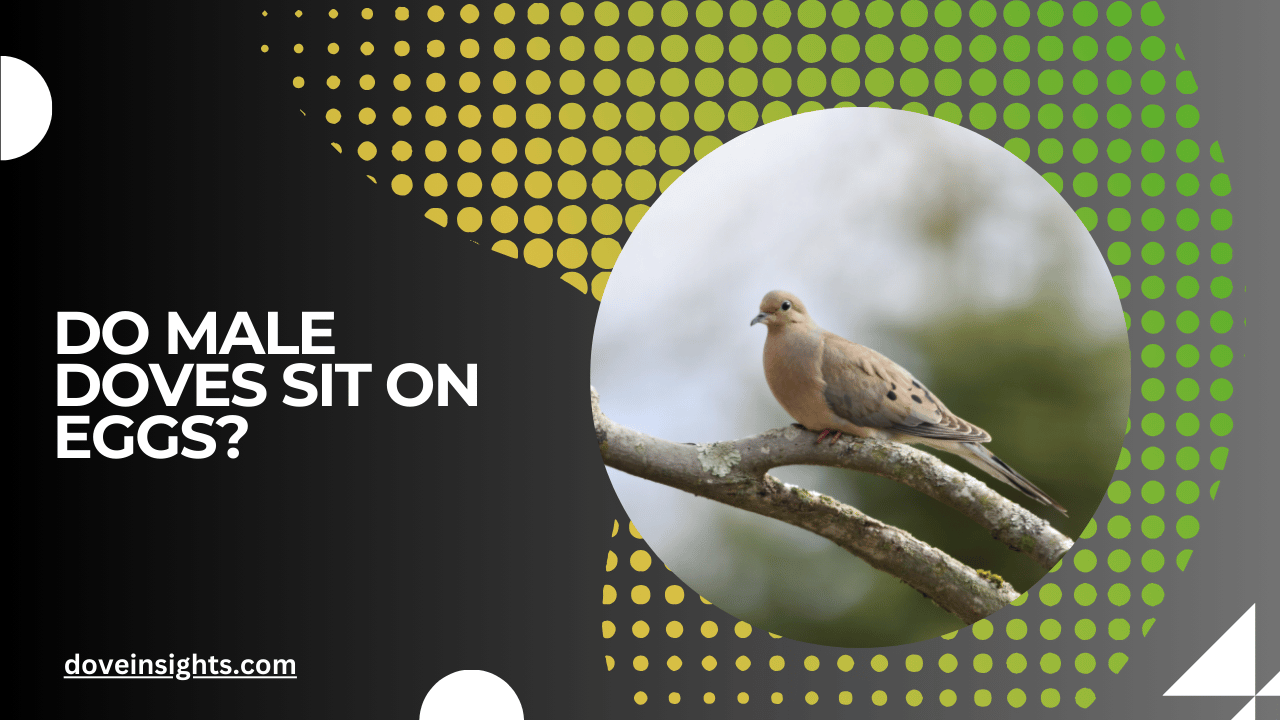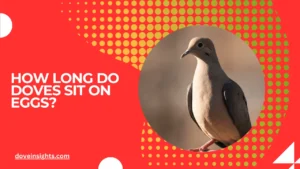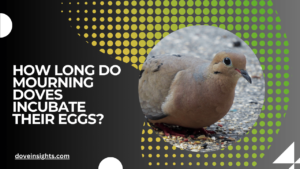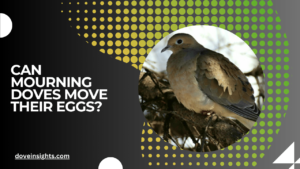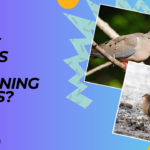When most people think of parenting in the animal kingdom, they tend to picture the mother as the primary caregiver.
In many species, this assumption holds true, with females taking on the bulk of nurturing duties, such as incubating eggs and feeding young. However, in the world of doves, the dynamics can be quite different. One question that often arises is: do male doves sit on eggs?
In the case of mourning doves, and many other dove species, the answer might surprise you. Unlike many birds where the female is the sole incubator, male mourning doves play a significant role in the incubation process, often sitting on the eggs just as much as the female.
This shared responsibility between the sexes is part of a fascinating and lesser-known aspect of dove behavior that is both nurturing and collaborative.
Understanding whether male doves sit on eggs is more than just an interesting tidbit for birdwatchers. It reveals deeper insights into aviary parenting, shared responsibilities in the wild, and the evolutionary adaptations that support successful offspring rearing.
In this article, we will explore the roles of both male and female doves in the egg incubation process and delve into the significance of their cooperative approach to parenting.
Contents
- 1 The Role of Male Doves in Parenting
- 2 Incubation Process and Timeline
- 3 Why Do Male Doves Share the Incubation Duties?
- 4 The Shared Parenting Responsibilities After Hatching
- 5 The Significance of Male Incubation in Dove Behavior
- 6 Conclusion:
- 7 FAQ’s
- 7.0.1 Do male mourning doves incubate the eggs alone?
- 7.0.2 How long do mourning dove eggs take to hatch?
- 7.0.3 Why do male doves sit on eggs?
- 7.0.4 Is it common for male birds to incubate eggs?
- 7.0.5 What happens if the male dove doesn’t incubate the eggs?
- 7.0.6 Do male doves help feed the chicks after hatching?
The Role of Male Doves in Parenting
To understand whether male doves sit on eggs, it’s essential to explore their parenting role. Mourning doves, like many species, practice shared incubation. In this species, both the male and female take turns incubating the eggs, with both parents playing an equal part in ensuring their young are protected and cared for.
While female doves are often responsible for laying the eggs, it’s not unusual for males to take the lead when it comes to keeping the eggs warm.
Male doves are known to take turns incubating the eggs with the female, ensuring that the eggs are kept at the optimal temperature for hatching. This shared duty is particularly important, as it allows both parents to conserve energy and maintain a balance in their care responsibilities.
The male’s role in incubation is not just about sitting on eggs. They also protect the nest, keeping a close watch for predators and disturbances, and sometimes even brooding the chicks once they hatch.
The involvement of the male in these tasks showcases the cooperative nature of dove parenting, making it a more balanced and supportive system compared to many other bird species.
Incubation Process and Timeline
Understanding the specifics of the incubation process in mourning doves can provide further context to the question of whether male doves sit on eggs. Mourning doves typically lay two eggs in a nest, which are incubated for about 14 to 15 days before hatching.
The process begins when the female lays her eggs, usually early in the morning or evening. While the female dove spends most of the time immediately after laying the eggs on the nest, it is the male dove who will often take the lead during the later stages of incubation.
The male is often seen on the nest during the day, keeping the eggs warm, while the female may take breaks to eat, drink, and gather food.
Both parents will rotate on and off the nest, typically in 12-hour shifts, ensuring that the eggs are consistently incubated.
This system of alternating is essential for the survival of the eggs. Even though males are less likely to stay on the eggs continuously, their role is just as vital in keeping the eggs warm and protecting them from environmental threats.
The cooperative nature of dove parenting, where both males and females share the incubation responsibilities, is believed to have evolved as an adaptation to ensure the survival of the species. Mourning doves are relatively small and vulnerable, and the temperature-sensitive eggs require careful attention to thrive.
By sharing incubation, both parents can optimize the chances of the eggs hatching and provide the best environment for the chicks.
One reason male doves play such an active role in incubation is that sharing the task reduces the strain on each parent.
Incubating eggs takes a lot of energy, and having both parents take turns helps to ensure that both can maintain their health while still caring for the next generation. This mutual support system is beneficial for the long-term survival of the offspring, as it ensures the eggs are always protected and attended to.
Additionally, having the male share the role in brooding and incubation also ensures that there is always someone keeping watch over the nest. In the wild, doves face various predators that could easily target their vulnerable eggs or chicks.
By having both parents involved, they can better defend their territory and reduce the risk of predation.
Once the eggs hatch, the role of the male dove doesn’t end. In fact, the male dove continues to share parental duties with the female.
Mourning doves are particularly nurturing toward their young, and both parents take turns feeding the chicks. The male dove plays a crucial role in providing regurgitated food to the young, often working alongside the female to ensure that the chicks grow strong and healthy.
Both parents remain in the vicinity of the nest, protecting their young from potential threats and keeping them warm. The father’s involvement in feeding and caring for the chicks helps maintain the stability of the family unit and increases the chances of the chicks surviving to maturity.
Unlike many bird species where one parent takes a backseat role after hatching, mourning dove fathers remain active in raising their young.
This continued partnership is essential for the successful rearing of the chicks, and the shared responsibilities between male and female mourning doves ensure that the young are well cared for and given the best chance to thrive.
The Significance of Male Incubation in Dove Behavior
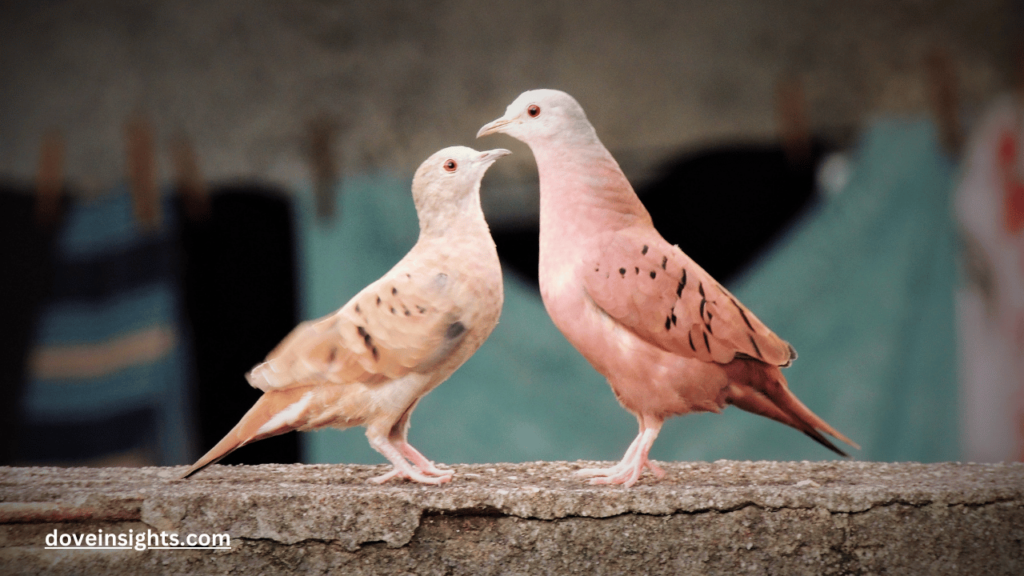
The involvement of male mourning doves in incubating eggs and caring for their young is an important aspect of their behavior that sets them apart from many other bird species.
This shared parenting system reflects a cooperative approach to reproduction that is often not fully appreciated by those who observe doves casually.
By taking an active role in incubating the eggs, male doves help to reduce the burden on the female, ensuring that the eggs are cared for around the clock.
This partnership is a sign of mutual commitment, not only to each other but also to the survival of their offspring. It is a behavior that contributes to the stability and success of the dove population, allowing them to adapt to different environments and conditions.
The male’s role in incubation also offers a glimpse into the complexity of avian parenting and the variety of ways in which species have evolved to care for their young.
It highlights the importance of shared responsibilities in the natural world and challenges traditional ideas of gender roles in parenting.
Conclusion:
So, do male doves sit on eggs? The answer is a resounding yes. Male mourning doves play an integral role in the incubation process, sharing the task with the female to ensure the eggs are kept warm and protected.
Their involvement in incubation, brooding, and feeding the young showcases the cooperative nature of dove parenting and highlights the mutual responsibility of both parents in ensuring the survival of their offspring.
The role of the male dove in egg incubation is an important aspect of their biology and behavior, revealing the complexities of aviary parenting and the evolutionary advantages of shared responsibilities.
By learning about these behaviors, we gain a deeper appreciation for the delicate balance that sustains life in the natural world and the nurturing instincts that exist even in the most unlikely places.
FAQ’s
Do male mourning doves incubate the eggs alone?
No, both male and female mourning doves share the incubation duties, taking turns to ensure the eggs are kept warm.
How long do mourning dove eggs take to hatch?
Mourning dove eggs typically hatch after about 14 to 15 days of incubation.
Why do male doves sit on eggs?
Male doves sit on eggs to share the incubation responsibility with the female, helping to maximize the chances of successful hatching.
Is it common for male birds to incubate eggs?
While most bird species have females as the primary incubators, male doves are actively involved in the incubation process.
What happens if the male dove doesn’t incubate the eggs?
If the male doesn’t participate in incubating the eggs, the female would need to handle it on her own, which could be exhausting and reduce the likelihood of successful hatching.
Do male doves help feed the chicks after hatching?
Yes, male mourning doves assist in feeding the chicks by providing them with regurgitated food.

